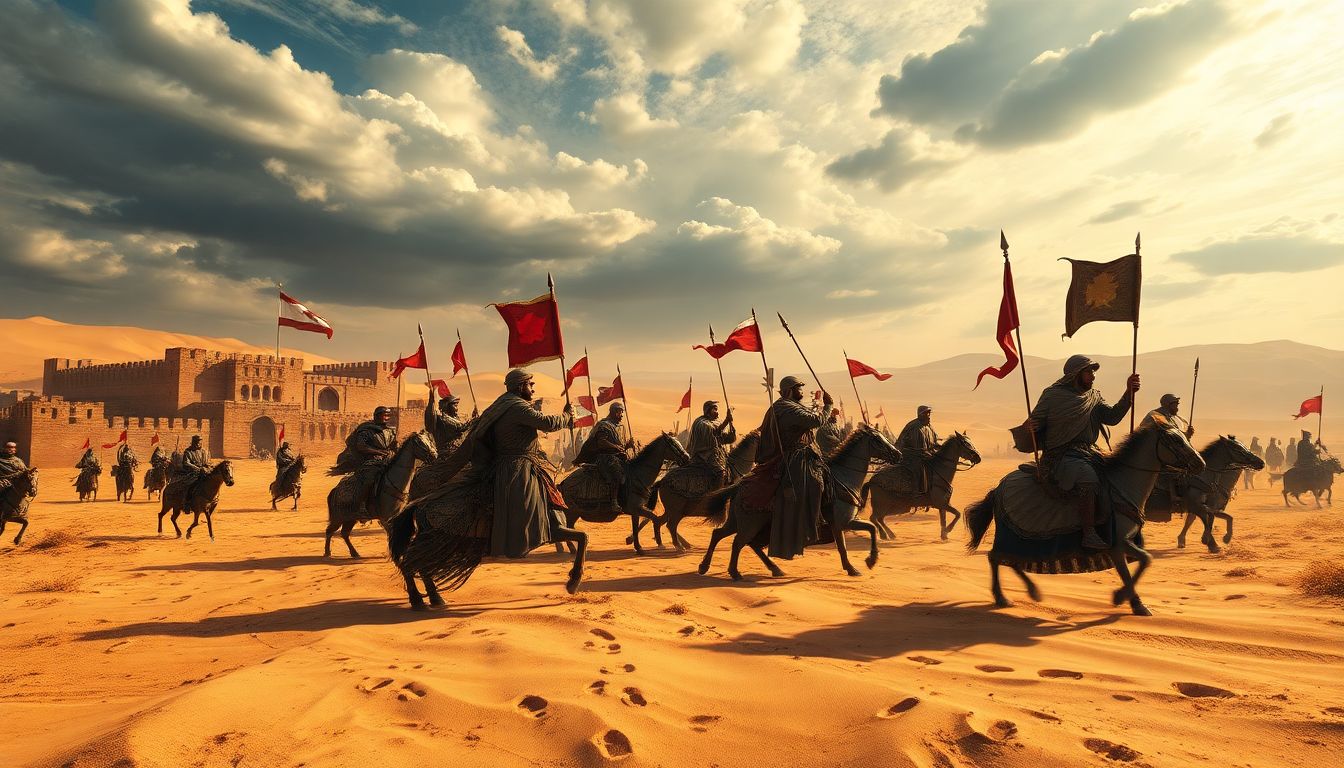
List of Major Islamic Battles and Their Dates: A Comprehensive Historical Overview
Introduction
Islamic history is filled with key battles that changed the course of nations. These fights weren’t just about land or power—they shaped the religion and its followers' future. Understanding these battles helps us see how Islam grew and stayed strong through tough times. In this article, we’ll look at the most important Islamic battles, their dates, what caused them, and their lasting effects.
Early Battles in the Prophet Muhammad’s Life
The Battle of Badr (624 CE)
The Battle of Badr was a huge moment for Muslims. It was their first major victory against the Quraysh, who had been fighting against Prophet Muhammad. This victory gave early Muslims hope and confidence. It also made Muhammad’s leadership stronger and set the stage for future battles.
The Battle of Uhud (625 CE)
Just a year after Badr, Muslims faced defeat at Uhud. The Quraysh wanted revenge, and this battle tested the Muslims’ resolve. It was their first big loss. The experience taught important lessons about discipline and following orders in battle. It reminded Muslims that victory needs unity.
The Battle of the Trench (627 CE)
The Quraysh came to attack Medina but failed to break the city’s defenses. Muslims dug a deep trench around Medina, an idea inspired by Persian and Arab tactics. The battle showed how smart planning can turn the tide. It strengthened the Muslims' defenses and proved Muhammad’s leadership was solid.
Key Battles During the Ridda Wars and Conquests
The Ridda Wars (632–633 CE)
After Muhammad died, some tribes tried to leave Islam. The Ridda Wars fought back against these rebels. Key battles like the Battle of Yamama helped unify Arabia under Islam. These wars brought stability and control to the region, making Islam stronger.
The Battle of Al-Qādisiyyah (636 CE)
This battle was about conquering Persia. Muslims faced the mighty Sassanian Empire. Their victory marked a major shift, leading to the fall of Persia’s empire. It was a turning point that made Islam spread into Iran and beyond.
The Battle of Yarmouk (636 CE)
Muslims fought the Byzantines to take control of Syria. The victory at Yarmouk opened the door for Muslim control of the Levant. It was a decisive win, and the region became part of the growing Islamic empire.
Major Battles During the Umayyad and Abbasid Caliphates
The Battle of Poitiers (732 CE)
Muslims pushed into Europe, but Charles Martel’s forces stopped them at Poitiers. This battle prevented Islam from expanding further into France. It is seen as a key moment that kept Europe mostly Christian and protected Western territories from Muslim rule.
The Battle of Tabaristan (756 CE)
Muslims faced resistance in Persia but kept fighting to keep control. The victory at Tabaristan in northern Iran helped the Umayyad Caliphate stay strong in the region. It meant that Muslim rule expanded deeper into Persia.
The Battle of the River Al-Qādisiyyah (1258 CE)
This battle was part of the Mongol invasion. Mongols attacked Baghdad, the heart of the Islamic world. The defeat marked the decline of the Abbasid Dynasty and led to a period of chaos. It showed how powerful enemies could threaten Islamic civilization.
Prominent Battles in Later Islamic History
The Battle of Mohács (1526 CE)
Ottomans fought the Habsburgs in Hungary. They won easily, which led to Ottoman control over much of Hungary and Central Europe. This victory made the Ottoman Empire a major European power.
The Battle of Marj Rahit (684 CE)
During the first Islamic civil war, Muslim factions fought over leadership. The battle at Marj Rahit helped the Umayyads establish their rule. It was a side of early Islamic struggles for power and control.
The Battle of Vienna (1683 CE)
Ottomans tried to take over Europe through Vienna. Christian armies finally pushed back, ending Ottoman advances into Central Europe. This battle marked the beginning of a slow decline for the Ottoman Empire in Europe.
Conclusion
From Badr to Vienna, each Islamic battle played a part in shaping a mighty civilization. These fights were more than just clashes—they built identities, expanded territories, and tested faith. They teach us lessons about unity, strategy, and resilience. By studying these battles, we can better understand how Islam grew and endured through centuries of challenges. Their legacy reminds us that determination and faith can overcome even the toughest obstacles.









0 Comments